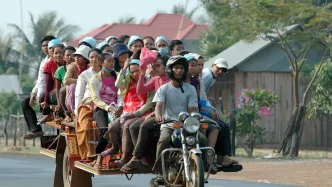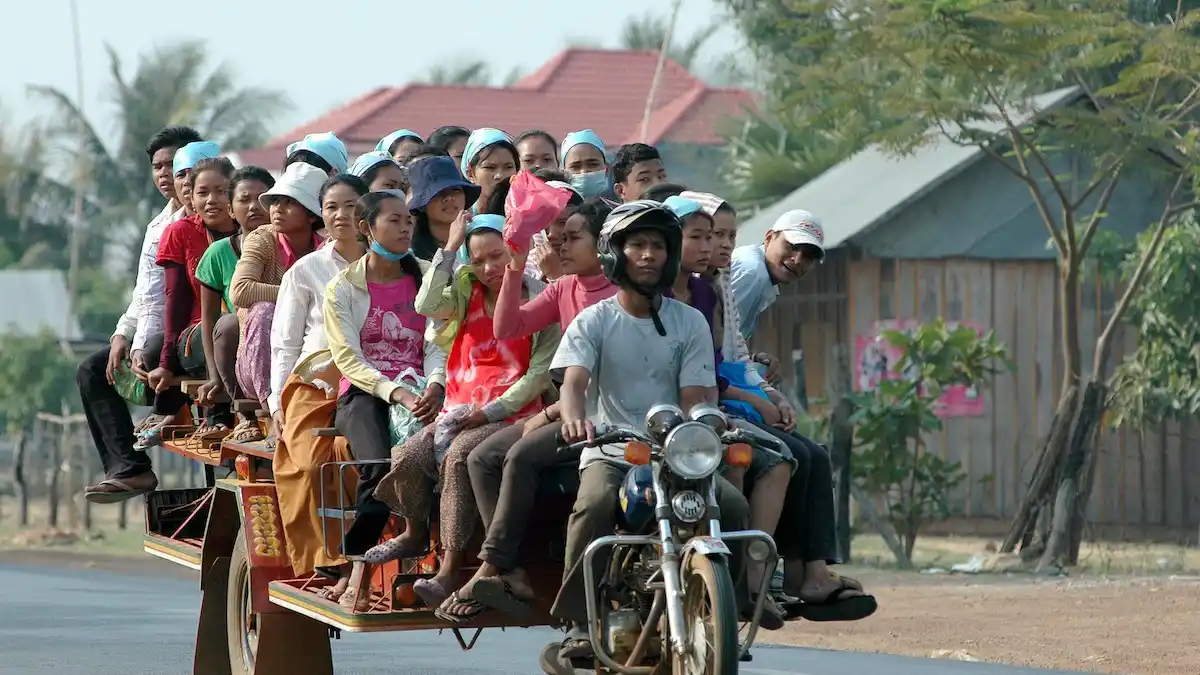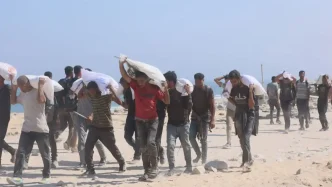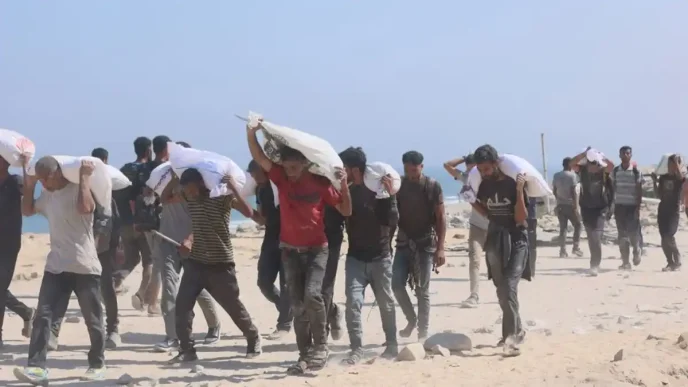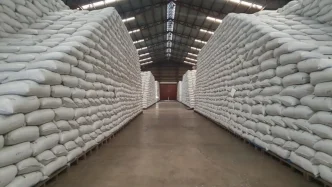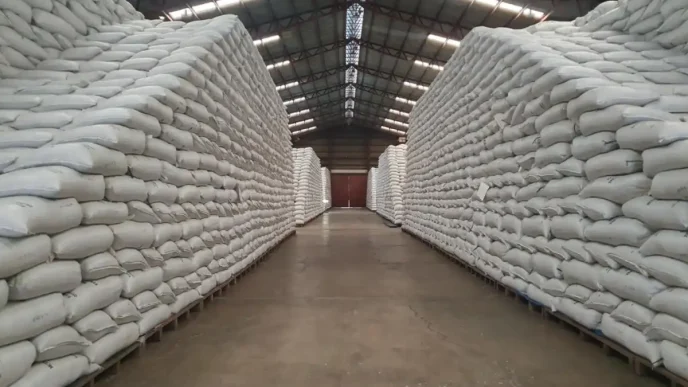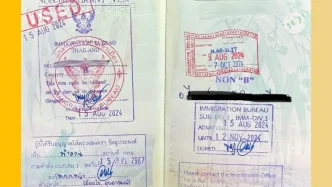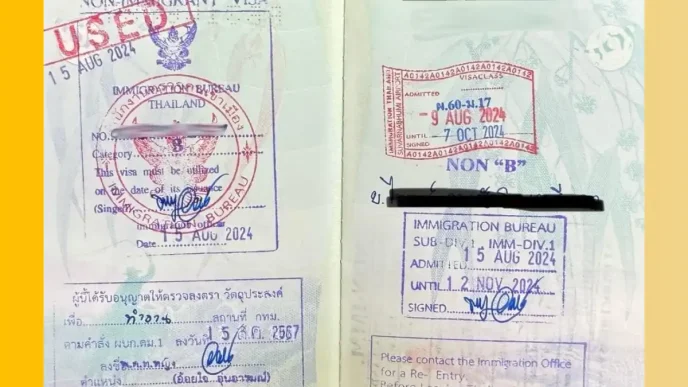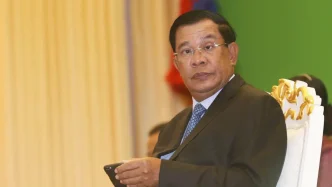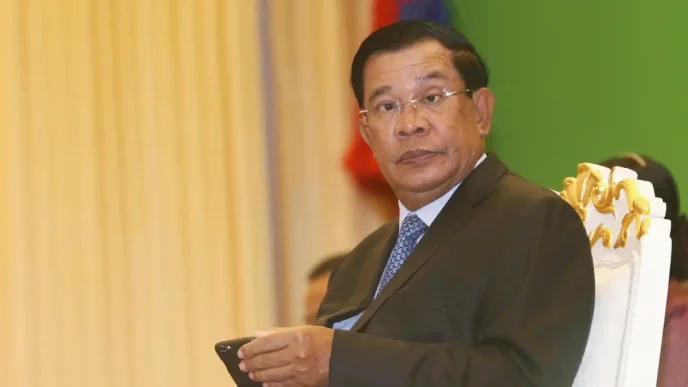Over 610,000 Cambodian citizens have returned from Thailand as of August 5, 2025, fleeing border clashes and reports of violence and discrimination. In response, the Cambodian Ministry of Labour and Vocational Training has rolled out a comprehensive job promotion campaign, emphasizing the benefits of local employment such as healthcare and pensions, to reintegrate these workers into the domestic economy.
A Wave of Returnees Amid Regional Tensions
The mass return of Cambodian migrant workers from Thailand, driven by escalating border tensions and troubling accounts of mistreatment, has placed significant pressure on the Cambodian government to provide immediate solutions. The Ministry of Labour and Vocational Training reported that tens of thousands of returnees have already secured employment within days of their arrival, a testament to the urgency and scale of the government’s response.
At the heart of this initiative is a meeting held on August 3, 2025, in Siem Reap province, where Labour Minister Heng Sour addressed a group of returned workers. He outlined the tangible benefits of working within Cambodia, including monthly salaries ranging from $250 to over $300, which he argued could sustain families when combined with state-provided benefits. These benefits, he emphasized, include free healthcare coverage for illness or accidents and a retirement pension through the National Social Security Fund (NSSF) for workers reaching the age of 60.
“The most important thing is that when we grow older, the state will take care of us. If we work from now until the age of 60, the NSSF will support us. That’s a big difference. If we go work in Thailand and reach 45 years old, they may not want us anymore. In construction, at age 45 or 50, it’s often too late. People return with nothing left” Heng Sour stated on August 3, 2025, highlighting the long-term security offered by local employment.
Economic Incentives and Social Protections
Beyond basic wages, the minister detailed additional incentives tailored to specific demographics. Women employed in factories, for instance, are entitled to a $20 allowance for each pregnancy check-up, free medical services, and a $200 payment upon giving birth. These measures aim to address not only immediate financial needs but also broader social welfare concerns, ensuring that workers can build stable lives without the uncertainties faced abroad.
While acknowledging that wages in Cambodia might be slightly lower than in Thailand, Heng Sour argued that the long-term security provided by state-backed healthcare and pensions outweighs the short-term financial disparity. “No matter how things change, please remember that the reason you ran here was for a reason. You were afraid because people wanted to harm you. If you go back, they may harm you again, or you will struggle again. So be determined to work in our own country, help our families, our society and contribute to our economy” he urged on August 3, 2025.
National Pride and Economic Development
The minister’s address also carried a strong message of national pride and self-reliance. He framed the return of migrant workers as an opportunity to bolster Cambodia’s economy and challenge derogatory perceptions from neighboring countries. “To prevent our nation from being looked down upon by Thais, the only solution is for our citizens to come back and work in Cambodia to help develop our country’s economy” he added during the Siem Reap meeting on August 3, 2025.
This rhetoric taps into a broader narrative of economic sovereignty and resilience, positioning the reintegration of migrant workers as a critical step toward reducing Cambodia’s dependence on foreign labor markets. By encouraging returnees to contact the ministry through provided phone numbers for rapid job matching, the government aims to streamline the transition and ensure that families are supported without delay.
Context of Border Clashes and Regional Dynamics
The exodus of over 610,000 Cambodians from Thailand is rooted in a complex web of regional tensions. Recent border clashes, though specifics remain limited in verified reports, have heightened fears among migrant workers, many of whom have cited violence and discrimination as reasons for their return. While the exact nature and scale of these incidents require further corroboration, the impact on Cambodia’s labor force is undeniable, with hundreds of thousands now seeking stability at home.
Historically, Thailand has been a significant destination for Cambodian migrant workers, particularly in sectors like construction and manufacturing, where demand for low-cost labor is high. However, the precarious nature of such employment—often lacking formal contracts or protections—leaves workers vulnerable to exploitation and sudden policy shifts. The Cambodian government’s current campaign seeks to address this vulnerability by promoting domestic opportunities as a safer, more sustainable alternative.
Challenges of Reintegration and Economic Realities
Despite the optimism conveyed by government officials, reintegrating over half a million workers into the Cambodian economy poses significant challenges. The country’s labor market, while growing, must contend with structural issues such as limited industrial capacity in certain regions and competition for jobs in urban centers like Phnom Penh and Siem Reap. Additionally, the wage gap between Cambodia and Thailand, though mitigated by social benefits, may still deter some workers from committing to local employment in the long term.
Moreover, the psychological toll of displacement and the trauma associated with reported violence cannot be overlooked. Many returnees may require not only economic support but also social and emotional assistance to rebuild their lives. The Ministry of Labour and Vocational Training has yet to announce specific programs addressing these non-economic needs, though the emphasis on family and community in Heng Sour’s speech suggests an awareness of the broader human impact.
Broader Implications for Cambodia-Thailand Relations
The mass return of migrant workers also raises questions about the future of Cambodia-Thailand relations, particularly concerning labor migration and border security. Both countries have a history of periodic tensions, often exacerbated by territorial disputes and differing political priorities. The current situation underscores the need for bilateral dialogue to address the root causes of worker displacement, whether through improved protections for migrants in Thailand or enhanced economic cooperation to create opportunities on both sides of the border.
For now, Cambodia’s focus remains on internal solutions. The job promotion campaign, with its dual emphasis on immediate employment and long-term security, represents a proactive attempt to turn a crisis into an opportunity. By framing local work as both a practical necessity and a patriotic duty, the government hopes to foster a sense of unity and purpose among returnees.
Looking Ahead: Sustainability of the Initiative
As the number of returning workers continues to grow, the sustainability of Cambodia’s reintegration efforts will be tested. Ensuring that job placements are not only available but also matched to workers’ skills and regional needs will be critical. Additionally, the government must maintain its commitment to social protections like healthcare and pensions, which serve as key differentiators from the uncertainties of working abroad.
International observers and local stakeholders alike will be watching to see whether this campaign marks a turning point in Cambodia’s approach to labor and migration. If successful, it could serve as a model for other nations grappling with similar challenges, demonstrating how targeted policies can transform the narrative of displacement into one of empowerment.
For the hundreds of thousands of Cambodians who have returned home, the promise of stability and state support offers a glimmer of hope amid uncertainty. As Labour Minister Heng Sour’s words echo through communities like Siem Reap, the question remains: can Cambodia build an economy strong enough to keep its people from looking across the border once more?

